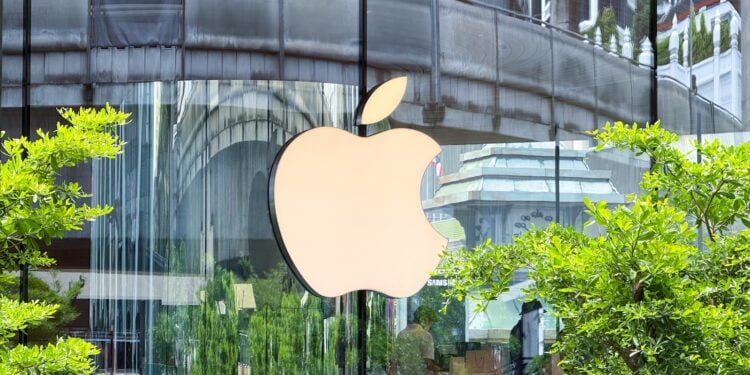Pressure on major US tech companies continues to grow in Europe. With the Digital Markets Act (DMA), the EU aims to strengthen competition on digital platforms and limit market power. Apple sees this as a direct interference with its business model and is appealing to the General Court of the European Union. The case is currently being heard in Luxembourg over whether Apple can be forced to open up key parts of its iPhone platform, the App Store, and iMessage.
Apple has launched its most comprehensive legal challenge to date against the Digital Markets Act. The company is arguing before the European Union's second-highest court that the new law constitutes unlawful interference with the structure and functionality of its products and services. The lawsuit is directed against several obligations that Apple believes violate privacy, user security, and intellectual property rights.
Key point: Three controversial issues in focus
The proceedings focus on three specific aspects of the DMA against which Apple is taking legal action. They concern interoperability with third-party hardware, the treatment of the App Store as a gatekeeper service, and the investigation into the role of iMessage.
Interoperability with competing products
The DMA requires companies like Apple to make their devices and services compatible with third-party products. For Apple, this means that iPhones must work seamlessly with competitors' headphones, smartwatches, and other devices. Apple opposes this, arguing that forced interoperability with unverified or insecure devices could compromise iOS's security architecture. The company also sees this regulation as a violation of data protection principles and intellectual property rights.
App Store as a gatekeeper service
Another key point is the classification of the App Store. The EU Commission considers the App Store a service over which Apple exercises a so-called gatekeeper position. Apple has exclusive control over which apps can be installed on iPhones and how transactions are processed. The Commission sees this as structural market power and imposed a fine of €500 million in April. The reason for this was the allegation that Apple had prohibited app providers from pointing to cheaper purchase options outside of the App Store – a violation of the DMA's anti-steering prohibition. Apple is contesting both this classification and the fine. In the company's view, the App Store is not a unified service and therefore does not fall under the DMA's legal regulations.
iMessage and the role of the Commission
iMessage also plays a role in the lawsuit. The EU Commission examined whether the service should be subject to the DMA regulations. Ultimately, it decided not to fully regulate iMessage because the service does not generate direct revenue for Apple. Nevertheless, Apple criticizes the investigation itself. According to the company, the initiation of these proceedings was already inadmissible from a procedural perspective. Apple sees this decision as a problematic precedent.
The EU Commission's view
Paul-John Loewenthal represented the EU Commission in court. He emphasized that Apple had established a dominant market position through its complete control over the iPhone platform. This control enabled Apple to generate above-average profits in adjacent markets—such as the distribution of digital content or payment systems. Competitors, he argued, were significantly disadvantaged by the closed structure of Apple's ecosystem. Loewenthal put it this way:
"Only Apple has the key to this walled garden. It alone determines who has access to the iPhone universe and which products or services are available to users."
Significance of the procedure
The case before the General Court of the European Union is the first of its kind in which Apple is attempting to limit the legal scope of the DMA before the law is fully applied to its own services. The ruling could have far-reaching consequences. If Apple loses, the company would have to adapt key technical and commercial elements of its system.
A victory in court, however, would mean that Apple can largely retain control over its ecosystem—at least within the current legal limits. In any case, the case will set the tone for the future application of the DMA to large foreign platform operators.
Apple vs. Brussels: What's at stake
Apple is using legal means to limit the impact of the Digital Markets Act on its business model. The focus is on issues of security, data protection, competition, and market access. The case sets a precedent and could determine the extent of regulatory intervention in digital platforms. The stakes are high not only for Apple, but also for other tech companies operating in Europe. (Image: Shutterstock / onapalmtree)
- iPhone 17 booming – Wedbush raises price target for Apple
- Apple lawsuit without resistance: Prosser lets deadline pass
- iOS 26.1 at a glance: What's new in the fourth beta
- iOS 26.1 allows you to disable the camera swipe function
- iOS 26.1 Beta 4 brings new option for less transparency
- iOS 26.1 Beta 4 is here: Apple prepares final touches
- Apple in China: New antitrust complaint puts pressure on
- iPhone 17 hits the market – strong demand in China and the USA
- Apple Vision Pro Dual Knit Band meets with great demand
- WhatsApp tests limit on unanswered chats
- iPhone 17 Pro: Does Cosmic Orange really fade to rose gold?
- Apple M5 chip in benchmark: Fast, efficient, future-proof
- M5 MacBook Pro vs. M4 MacBook Pro: differences in the check
- Apple Vision Pro M5 at a glance: technology, design and price
- Apple M5 vs. M4: The most important innovations at a glance
- Apple hints at 120 Hz support for upcoming Studio Display





